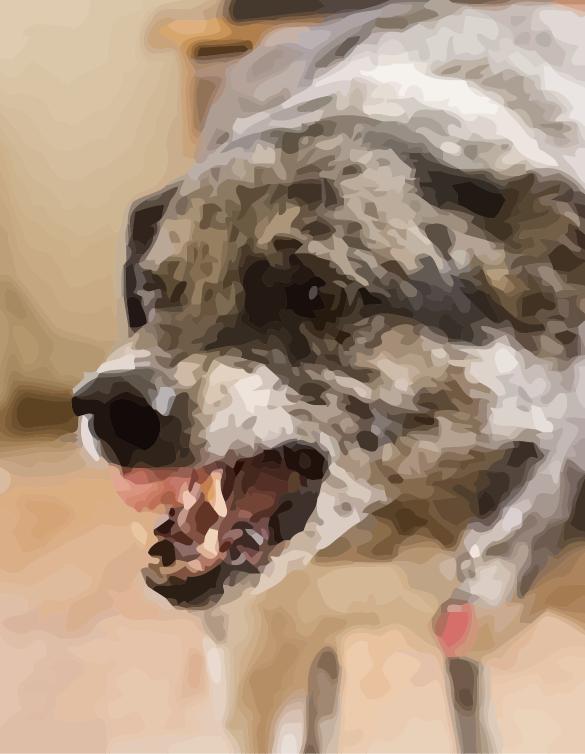Handling an Aggressive Dog in the Home

Dogs do not bite people without reason. If a dog shows aggression to its human family, growling or even biting them when they come too close, there is an underlying problem in the relationship. This may result from a failure in communication, a mismatch in personality of dog and owner, or bad training. Dogs have individual personalities, and some are more assertive than others. A strong-willed dog in the hands of a weak owner is likely to cause problems. Rottweilers, Doberman Pinschers, Bulldogs, German Shepherds, and some terriers such as Yorkshires and Jack Russells usually need firmer handling than other breeds and for this reason are best avoided by first-time owners. If you have any worries about your ability to handle your dog, seek expert advice from an animal behaviorist or professional dog trainer before any harm is done to yourself or others. Sometimes, however, there may be no other choice than to give up your pet, especially if there are children in the family.
Why Problems Arise
A dog who threatens or bites its owner is probably confused about who is in charge. You may have inadvertently led it to believe that it is the highest-ranking member of the family pack, and so it is prepared to challenge other members in situations when a resource appears to be at stake — for example, if someone comes too close to its food bowl, attempts to take a toy away, or tries to groom it. Such dogs constantly demand attention but become aggressive when the owner initiates contact without an invitation. It is essential that the dog regards all humans as taking precedence over it, but this is particularly important in a family with small children. You should also reinforce obedience training. Neutering can help in a young male.
If your dog is challenging you for position, you must immediately reduce its status by reinforcing the ground rules. Cool your relationship with your dog and do not let it on your lap or furniture. Ignore its demands for attention and give it time on its own. Avoid all situations that might lead to aggression.
A puppy that is removed too early from the litter (or a single pup) will have grown up without litter mates and won't have learned to inhibit its play biting. Such puppies often grow up to pull roughly on clothes or arms. This type of unruly behavior is always a nuisance and can be downright dangerous, particularly if there are small children or elderly people in the family. Play biting can be difficult to eradicate in an adult dog, so it is essential to teach good manners to your puppy. You should never engage in “play fights” with your dog; stop a game as soon as it shows any sign at all of becoming rough or starts to bite your arms.
Always supervise small children when playing with a dog, as they can easily hurt or frighten it inadvertently, and the dog will become threatening in its attitude to that child. An injured or frightened animal will often growl and bare its teeth, even if it knows and likes the person approaching it. This is less likely to happen if the dog has been handled regularly to develop a bond of trust, which is one reason why regular grooming is so important in building a relationship between dog and owner. Owners are commonly bitten when they attempt to intervene in a fight between dogs, or stop the dog from chasing and barking at an intruder or visitor such as the mailman. It is better not to restrain the dog by the neck or collar directly in such situations. Use a leash instead.
Q&A
The other day Sammy, my Shih Tzu, started barking hysterically at an approaching Great Dane. When I grabbed his collar to restrain him, he bit me. Why did he do this?
Sammy was exhibiting redirected aggression. He was all worked up to bite the Great Dane when you stopped him, so he went for the nearest object, which happened to be your hand. Unless Sammy has been aggressive to you at other times, I'd say his problem is aggression to other dogs, not you, and should be tackled from this direction.
One night in the dark my husband tripped over our Beagle, Andre, and hurt his paw. Since then Andre growls whenever my husband comes near him. Should my husband stay away from Andre for a while to let him get over it?
No, your husband needs to regain Andre's trust as soon as possible. Let him do all the feeding and exercising, while you stand back for a while. He should take care to speak gently to Andre, and to move slowly and smoothly with him until his nervousness ceases.




Leave a Reply